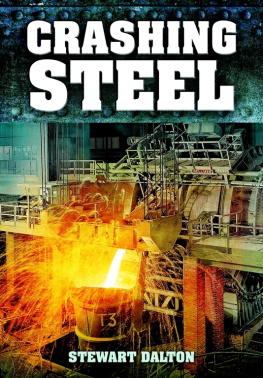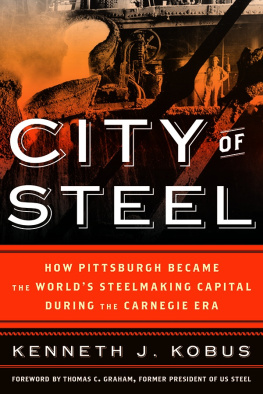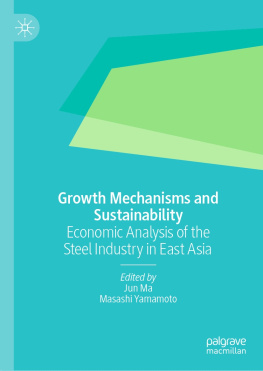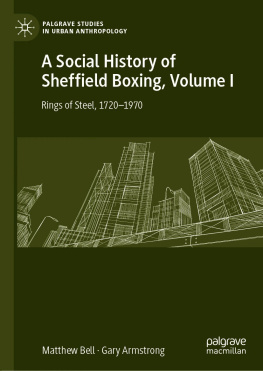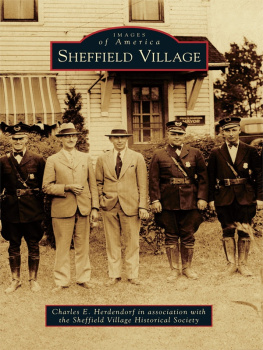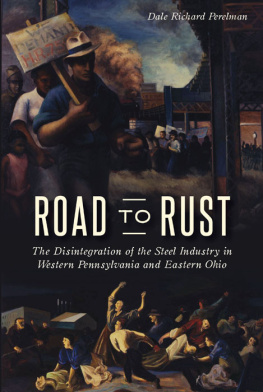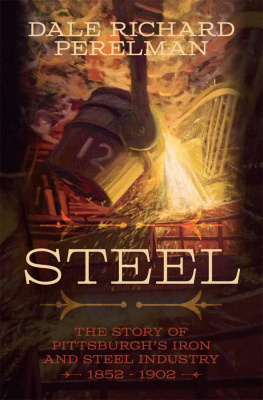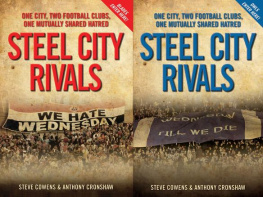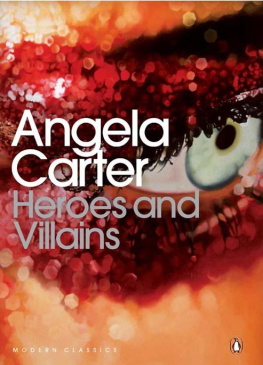Stewart Dalton - Crashing Steel
Here you can read online Stewart Dalton - Crashing Steel full text of the book (entire story) in english for free. Download pdf and epub, get meaning, cover and reviews about this ebook. City: England--Sheffield., Havertown, year: 2011, publisher: Pen and Sword;Wharncliffe Books, genre: Non-fiction. Description of the work, (preface) as well as reviews are available. Best literature library LitArk.com created for fans of good reading and offers a wide selection of genres:
Romance novel
Science fiction
Adventure
Detective
Science
History
Home and family
Prose
Art
Politics
Computer
Non-fiction
Religion
Business
Children
Humor
Choose a favorite category and find really read worthwhile books. Enjoy immersion in the world of imagination, feel the emotions of the characters or learn something new for yourself, make an fascinating discovery.
- Book:Crashing Steel
- Author:
- Publisher:Pen and Sword;Wharncliffe Books
- Genre:
- Year:2011
- City:England--Sheffield., Havertown
- Rating:4 / 5
- Favourites:Add to favourites
- Your mark:
- 80
- 1
- 2
- 3
- 4
- 5
Crashing Steel: summary, description and annotation
We offer to read an annotation, description, summary or preface (depends on what the author of the book "Crashing Steel" wrote himself). If you haven't found the necessary information about the book — write in the comments, we will try to find it.
Crashing Steel — read online for free the complete book (whole text) full work
Below is the text of the book, divided by pages. System saving the place of the last page read, allows you to conveniently read the book "Crashing Steel" online for free, without having to search again every time where you left off. Put a bookmark, and you can go to the page where you finished reading at any time.
Font size:
Interval:
Bookmark:
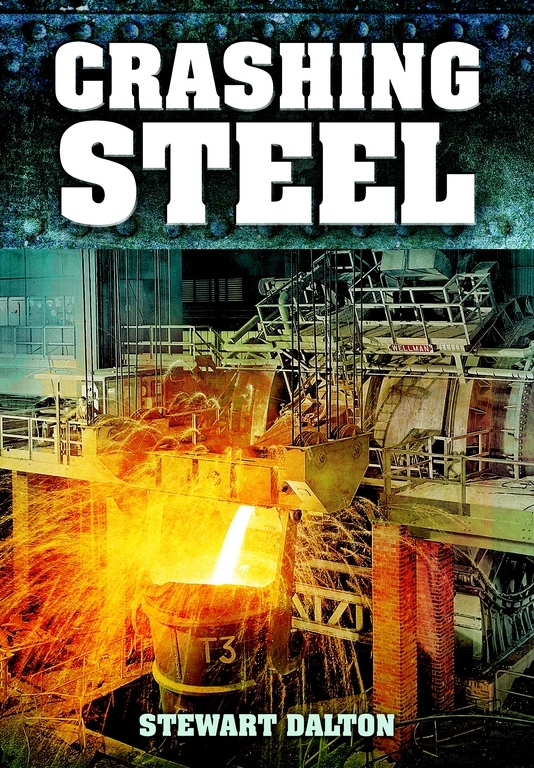
A SMALL CHILD GROWING UP on a Council estate in post war Sheffield, could easily be forgiven for believing that steel was the most important commodity in the world. After all it was everywhere; in the house, in the form of buckets, pans, baths, cutlery as well as being in many toys. Outside the home it was in daily use - the tram tracks, lamp standards, bus shelters, lorries and bikes - they too were made of steel, and the daily grime that invaded our lives came from the works that produced it. Steel and its associated engineering activities were the sole source of income for most working class families. The work provided the family income which paid for the rationed food, clothing and the very occasional treat.
More importantly steel had helped win the recent war which, as an alternative to cowboys and indians, was played out on a daily basis with the youngest of the group usually being forced to take the part of Jerry. Sheffield, so we were told, had made all the big guns, bombs and battleships armour without which we should have been helpless against the enemy. In our innocence we were as proud of Sheffields industry as we were of either of our two local football teams, The Blades or The Owls . The steel industry permeated our lives, as well as our small lungs.
The Dark Satanic Mills we sang about in morning assembly could only have been written with Sheffield in mind: our skyline was dominated by hundreds of smoking chimneys and the City lived to the constant accompaniment of steam hammers and the ring of metal meeting metal. These visible and audible reminders of the supremacy of Vulcan in his Kingdom would only vanish during Works shutdown, when those lucky enough would race off for a week at the seaside, leaving those less fortunate to venture onto Wincobank Hill and look across the smoke free Don Valley and, for perhaps the first time, see in the distance the fields toward Laughton. When in later years, Sheffield would proudly proclaim its credits as a clean air City, its detractors would churlishly publish old photographs of this smoke-filled valley - much to the annoyance of Sheffielders.
A trip to town on the tram, if possible via Attercliffe, offered the chance for a bit of train-spotting as the route took the tram alongside Brightside Engine Sheds. The locomotive stock rarely offered anything interesting and the chance for a Kop, was pretty remote but an opportunity was never missed to try and underline a number in the much treasured Ian Allen handbook. Running parallel with the sheds was English Steel Corporations Acid Siemens melting shop which in the dark, offered terrifying glimpses of molten steel being poured into ingot moulds. This was always accompanied by a display of sparks and flashes which would belittle anything to be seen on Bonfire Night. A small boy may also have been forgiven for the belief that the breed who worked in such awesome circumstances were very special. And they were; they were our dads, grandads, uncles and cousins and very, very occasionally, our mums.
Not only did the steelworks smoke enter the lungs. Theres nothing wrong with him; hes just got a Sheffield cough, was the frequent reply a concerned mother would get after consulting the doctor, but to the very susceptible, steel could enter the individuals psyche and a lifelong feeling for it would develop. Children on the housing estates could be heard arguing, My dad works at ESC. Its better than Firth Browns. Pity the child whose fathers occupation was so humble as to be ignored in the daily round of squabbles. The melter, the roller, the forgeman...these were the worthy occupations, not comparable in any way with the wimpish occupations found outside the factories. Sheffield made things, and unless your dads company made things needing either skill or effort, it didnt rank in the childish league table of proper jobs. The sheer hard, physical effort and long hours our fathers worked, often in poor environmental conditions, went unrecognised by the children who, with shift working, had very little of what we now call quality time with their fathers, who in any case probably preferred to relax in one of the Citys many pubs and working mens clubs. Not that work was left behind there, for it was a frequent and proud topic to be knowledgeably discussed at length, as their pints were consumed. The biggest ingot ever cast or the latest technique in forging would be debated in The Fox and Duck, as frequently as it was in any Boardroom.
Sheffield was a proud City, and its workers proud of their skills. The achievements of its industry were used to bolster morale in the post war austerity years. The production of publicity films by the very largest steel firms, portrayed a City whose skills contributed to the renewal of the countrys economic prospects. The latest jet engines, aircraft, ships, cars and nuclear power all seemed to rely upon some vital component which the City had made. Sometimes, if you were especially fortunate these components might be seen on the way to their destination. Huge multi-wheeled Pickfords vehicles would haul the very largest castings or forgings at a snails pace along the Citys roads. Placards alongside the gargantuan piece of steel would indicate its dimensions, weight and ultimate use. Only Sheffield could make it...or so we thought!
Schooldays led inevitably toward the 11-plus or scholarship, as this interesting piece of social engineering was still known locally. If failed, parental opinion was that it would lead to a life as foundry fodder or worse. Consequently, various rewards for passing were tantalisingly on offer. If all the bikes had been bought as were offered, the Raleigh factory in Nottingham would have worked extra shifts in the June of 1954. As it was, fewer bikes were obtained than places at Grammar School. Not many working class parents had any real idea of the objectives of a Grammar School education and even fewer pupils realised its implications beyond the acquisition of a uniform and a satchel. The satchel, which was often utilised as a handy weapon, allegedly should have been used to carry homework and a collection of time expired graffiti daubed textbooks to aid its completion. More often though, the well established network for cribbing the time wasting evening chore, was utilised to the full. Only rarely being compromised by an over-observant Master.
Firth Park Grammar was housed in a somewhat daunting old house, known as The Brushes. Two notable industrialists had lived there in earlier times. John Booth, whom we shall come across again was one, but perhaps more famously, it was owned by C W Kayser, a scissor forger who came from Germany and was to make his fortune as a Steelmaster, far from his native Rhineland. The tower, still a notable feature of The Brushes, was allegedly built by the self-exiled German to remind him of home. These must have been infrequent thoughts since, according to Sheffields pioneer of stainless steels, Harry Brearley who at one stage worked for him, Kayser believed that a mans Vaterland was not the place where he is born, but the place where he is living and doing well.
The Brushes home of Firth Park Grammar School.

We were encouraged to speak educated Yorkshire, as it is sometimes known. The punishment of a thousand lines I must pronounce my aspirates, was sufficient incentive for most of us to at least try and speak a more acceptable dialect of Standard English. Perhaps it was this that separated us from our peers more than the bright red uniform, or indeed the curriculum. Equally, there was an opportunity to mix with young people of our own age from some of the more affluent areas of the City. Some had parents with cars. Some had even been abroad on holiday. Mostly they wore the Stewarts & Stewarts, or Cole Brothers brand of the school uniform and not the Co-ops which was the lot of the majority. Subtle differences in the styling were easily observed and the cheaper Co-op garb swiftly recognised as such. Despite these overt statements of class, there nevertheless existed a good atmosphere in the school and many long lasting friendships were made. The realisation, by the age of 16, that a better and more fulfilling life was to be had beyond the Wicker Arches was sufficient incentive, despite the attentions of a very attractive young lady, to pass a few O levels.
Font size:
Interval:
Bookmark:
Similar books «Crashing Steel»
Look at similar books to Crashing Steel. We have selected literature similar in name and meaning in the hope of providing readers with more options to find new, interesting, not yet read works.
Discussion, reviews of the book Crashing Steel and just readers' own opinions. Leave your comments, write what you think about the work, its meaning or the main characters. Specify what exactly you liked and what you didn't like, and why you think so.

